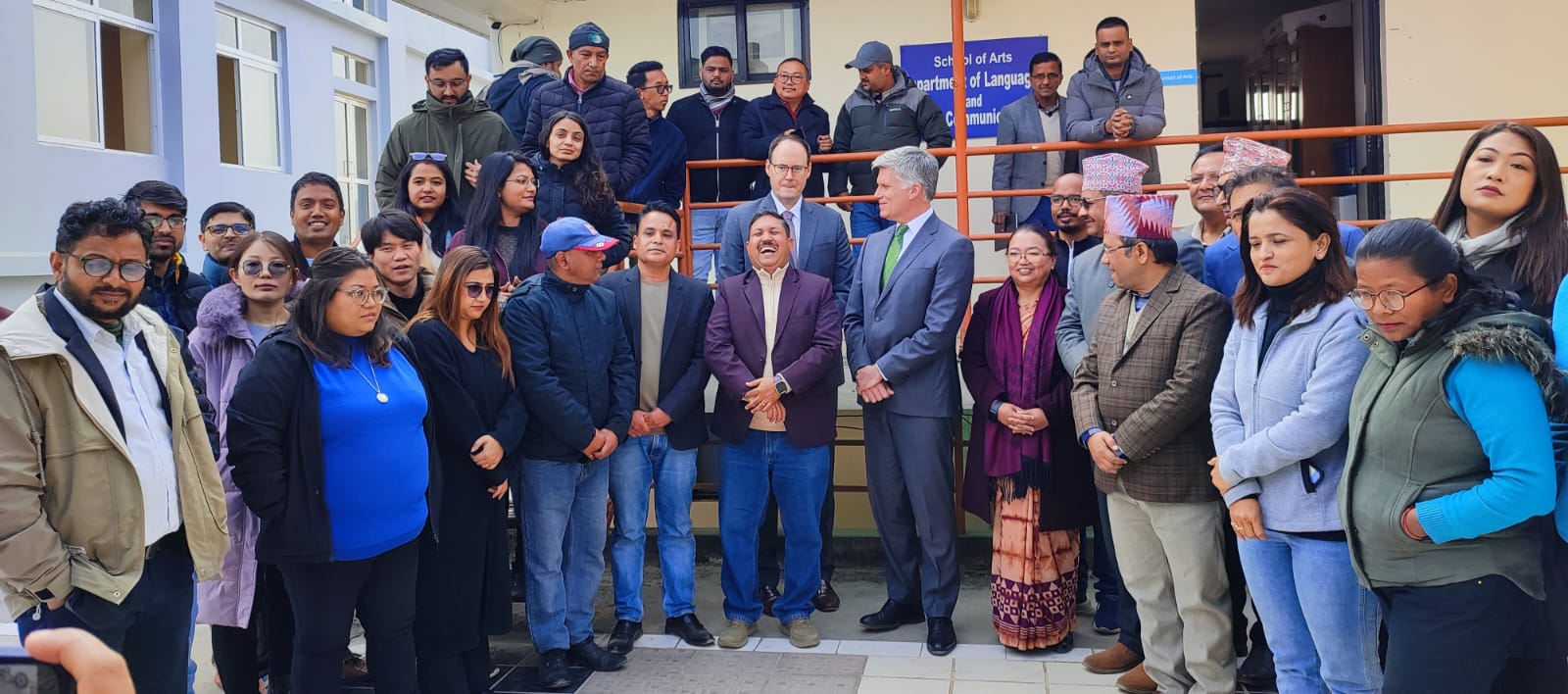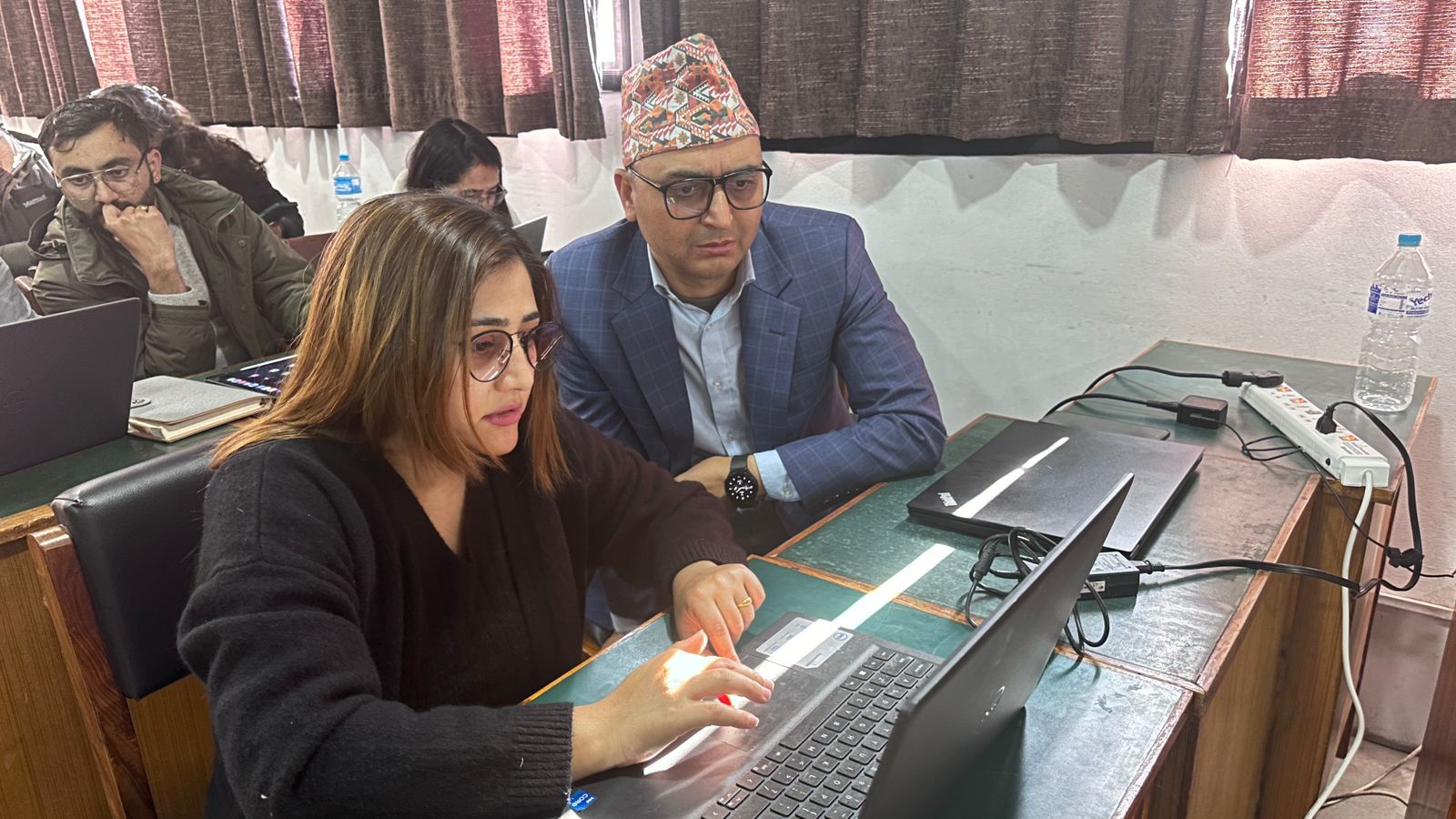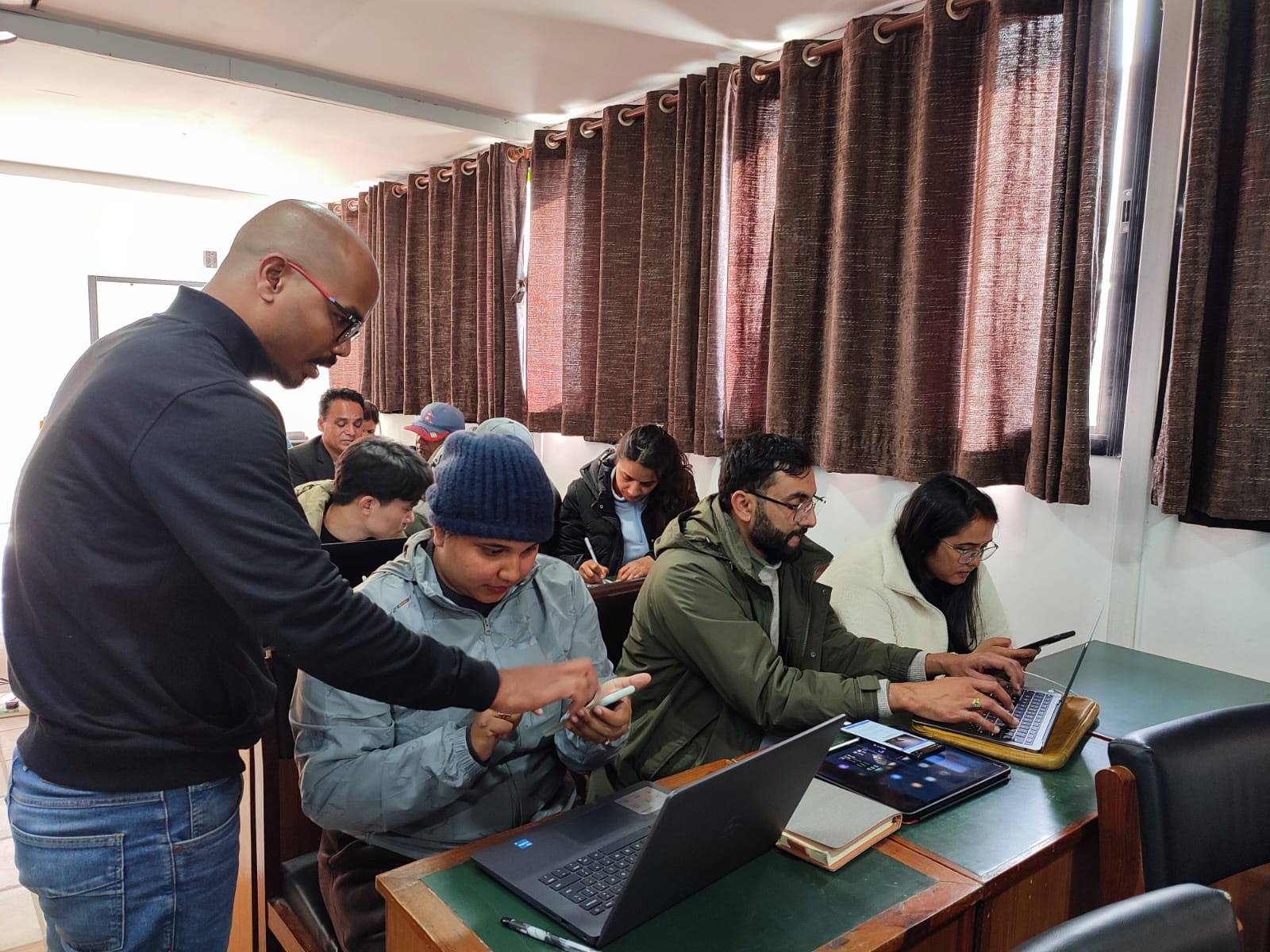抖淫视频 helping journalists in Nepal report the truth
Online news can easily deceive even the most vigilant individuals. Take Deepa, for example: She received a notification on her phone announcing a week-long holiday declared by the government due to an abnormal cold wave. Quickly, she shared the news with her colleagues and friends, only to realize later it was false—a result of a disinformation campaign circulating on social media.
It is often difficult for lay persons to distinguish between fact and disinformation or misinformation. While journalists must make this crucial distinction, they need the necessary skills and tools. This is particularly true in smaller countries with limited training opportunities and exposure to international best practices.
In this context, in December 2023 Canada’s Embassy in Nepal hosted two capacity building workshops for journalists and students of mass communications in Kathmandu. The Embassy partnered with – a prominent autonomous university in Nepal that is dedicated to maintaining academic excellence, and with , a well-known organization which promotes online safety.

Eye opening workshops
On the first day, 35 graduate students and three faculty members of the Department of Languages and Mass Communications attended the session. And on day two, 45 journalists representing almost all the major media organizations in Kathmandu attended the training.
On both days, attendees learned how to identify the key players and pressure points that spread misinformation and disinformation. They also learned about the challenges faced by journalists, and trends and methods used by fact-checkers. As part of the practical aspect of training, participants used techniques in exercise to identify misinformation and disinformation. They even competed in groups to create ‘misleading’ videos which the other groups had to debunk

Commenting on the event, Ms. Ekku Maya Pun, Dean, School of Arts, Kathmandu University said: "We greatly appreciate the initiation of discussions surrounding misinformation and fake news at Kathmandu University. Engaging in such vital dialogues is important for fostering awareness and cultivating an informed society capable of making judicious decisions. It is our hope to facilitate further interactions of this nature.
"These workshops were part of a series of capacity media building initiatives in the region that Canada has supported since 2011. Two were delivered in 2023 in Northeast India and Bhutan. This year, the Embassy plans to host similar workshops in under-served regions of India and in Nepal with a focus on LGBTQI rights and gender equality.
Canada recognizes that in Nepal, as in other democratic societies, media freedom is crucial for combating misinformation and disinformation, safeguarding human rights, and ensuring the public has access to accurate information. This recognition underscores the essential role of a free press in creating an informed public discourse through rigorous journalism and analysis.

Media freedom in action
As stated by Ambassador of Canada to Nepal Cameron MacKay while addressing the journalists attending the workshops: “It is crucial to recognize and celebrate the role of press freedom in providing societies with access to accurate information and the means to understand global events that can impact them or their communities.”
By equipping journalists and communication students with the skills to combat misinformation and disinformation and uphold journalistic integrity, the workshops in Nepal directly reflect Canada's strategic approach to media freedom. They embody the global commitment to fostering an informed press and promoting democratic values through targeted media education and capacity building initiatives.
- Date modified: